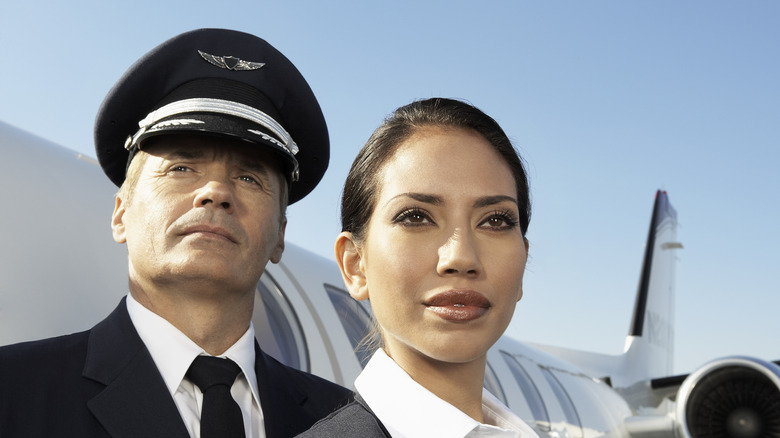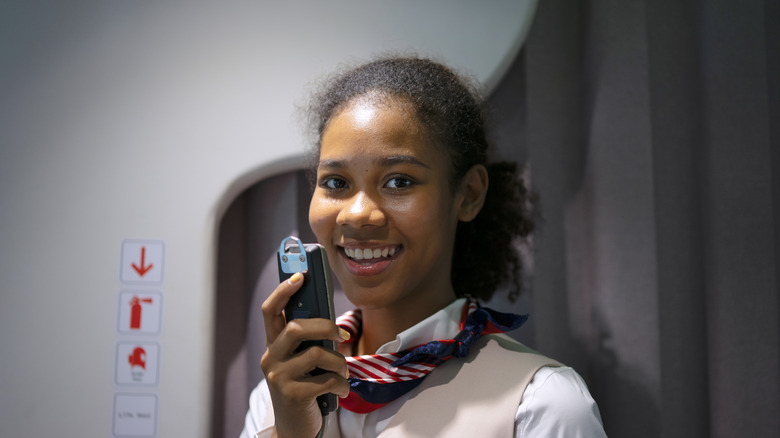Here's How To Tell When The Flight Crew Knows Something's Wrong, According To A Veteran Pilot
Almost 100,000 passenger planes take to the air each day, ferrying millions of people around the world. Air travel usually only becomes news when an unruly passenger disturbs a flight and video of their forced de-planing goes viral, but Boeing has had a run of bad press lately because of quality control and safety issues with its planes. In January, the door plug on an Alaska Airlines 737 came loose and caused the cabin to de-pressurize rapidly, and loose bolts and missing parts were later found on several other 737s.
Despite those issues, seasoned pilot Captain Richard Levy's list of the top four commercial airliners was filled with Boeings, although the aging 737 didn't make the cut.
Levy flew for American Airlines for more than 40 years, logging tens of thousands of hours of flight time in the process. In a recent interview with SlashGear, Levy had some advice for vigilant flyers who want to know if there are any telltale signs that a flight may be in trouble.
"Sometimes airline passengers can assume that something has gone wrong when the pace of the crew's physical movement has increased," he said, "as well as possibly additional PAs (public announcements) and frequency of these PAs made in the cabin."
Captain Levy has flown more than 30,000 hours
Levy also had words of assurance for anyone skeptical about getting on a Boeing-made plane. "From November 1977 until June 2018 I flew some 30,000+ hours in Boeing aircraft. Except for some almost routine and inconsequential defects, I never had any major emergencies." He emphasized that the recent incidents were not related to flaws in construction processes or materials used in the planes, but were quality control issues among airline technicians. "I have 100% confidence in the Boeing Aircraft Company and their aircraft," Levy said. "Now, with that said, could quality assurance have been better? Absolutely." He went on to highlight the fact that Boeing President and CEO Dave Calhoun is stepping down in the wake of the incidents, although he admitted, "Clearly safety has to go far beyond that."
In addition to his 30,000-plus hours flying commercial airliners, Captain Levy has flown more than 4,000 hours in smaller commercial planes and 2,000 hours in military jets.
He passed a series of Federal Aviation Administration exams at the age of 13 and made his first solo flight at 16, the youngest age allowed by the agency. He passed his commercial pilot's exam two years later and his multi-engine aircraft exam at the age of 23, both also at the minimum age allowed by law. Captain Levy now operates Aviation Expert Consulting, an agency that provides legal advice and media guidance to industry professionals. He also trains pilots on simulators and in live aircraft.

